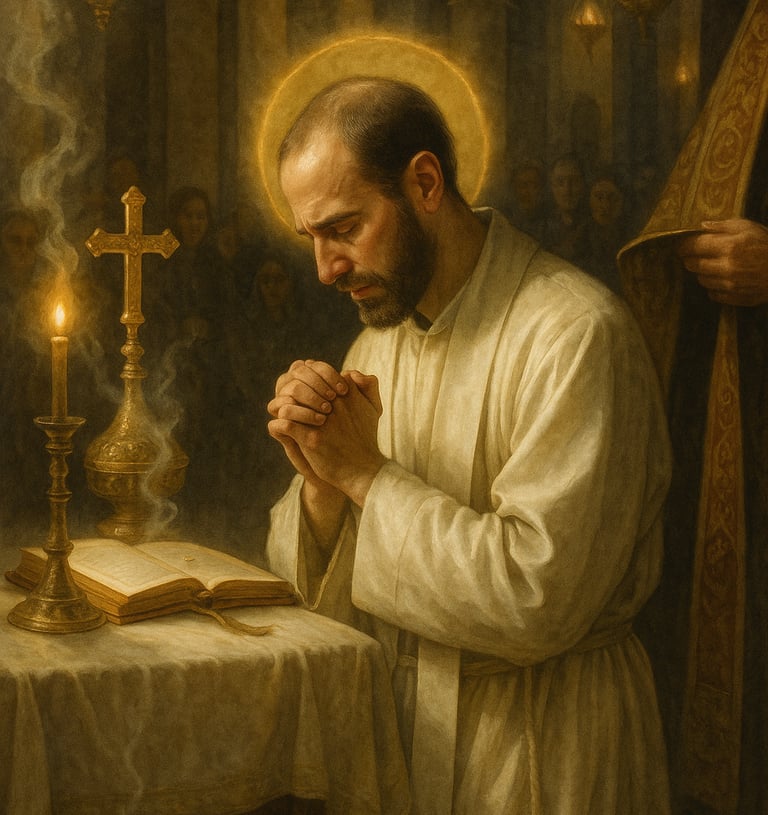Saint John Chrysostom – The Golden-Mouthed Preacher
Feast Day: September 13 (Roman Catholic), November 13 (Eastern Churches) | Patronage: Preachers, speakers, orators
Halo & Light Studios
9/13/20252 min read


Click Link for a reel of Daily Dose of Saints and Faithful Art:
https://youtube.com/shorts/1ZK9txX7reA
Fellow Pilgrims in Christ,
Imagine a voice so powerful, so piercing, that emperors trembled and entire congregations packed the church day after day just to hear the Word of God explained. That voice belonged to St. John Chrysostom — whose very name means “Golden-Mouthed.”
Born around 347 AD in Antioch, John was the son of a military officer and a devout Christian mother, Anthusa. From his earliest years, he showed a thirst for truth. He studied under the most famous orator of the day, Libanius, who reportedly said, “He would have been my successor — if the Christians had not stolen him.” John had all the makings of a brilliant lawyer or statesman, but God had other plans.
John chose a life of prayer and austerity, becoming a monk in the hills near Antioch. He memorized Scripture, fasted, and spent years in solitude, seeking God with his whole heart. His asceticism was so intense it damaged his health, forcing him to return to the city — but now with a burning desire to preach the Gospel.
Ordained a priest, John became Antioch’s greatest preacher. He had a unique gift: he could take the sometimes difficult words of Scripture and make them alive, relevant, and convicting. People flocked to hear him, and his homilies were copied and spread throughout the empire.
In 398 AD, John was appointed Archbishop of Constantinople, the capital of the Eastern Roman Empire. He reformed the clergy, preached against lavish excess, and sold the Church’s luxuries to feed the poor. He built hospitals and established charitable programs that put Christian mercy into action.
But John’s zeal for truth made him enemies. He spoke out against corruption — even when it came from the emperor’s court. His fearless preaching angered the Empress Eudoxia, who orchestrated his exile. Despite public uproar and riots from the faithful who loved him, John was sent away — not once, but twice.
John’s last years were marked by hardship and forced marches between places of exile. His health broke down, yet his letters to friends remain full of hope and trust in God’s providence. His final words as he died in 407 AD were: “Glory be to God for all things.”
Today, St. John Chrysostom is remembered not just for his brilliant words, but for the fearless way he lived them. The Divine Liturgy that bears his name is still celebrated daily in Byzantine Catholic and Eastern Orthodox churches — a sign that his voice continues to echo through the centuries, calling us to holiness.
St. John Chrysostom challenges us to ask: do we speak truth even when it is uncomfortable? Do we use our words to bring life, healing, and courage to others? His life reminds us that Christian speech is not about winning arguments, but about converting hearts — including our own.


